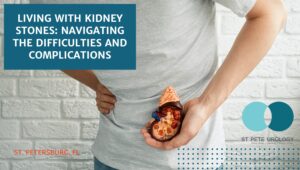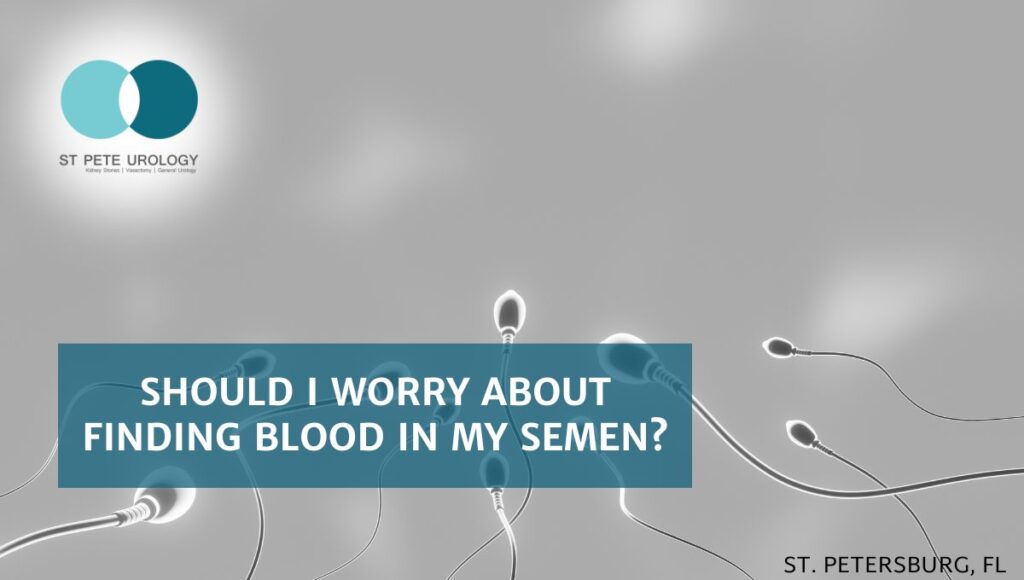Key Takeaways:
- Kidney stones can cause a range of complications, from mild discomfort to severe pain, and even infection.
Diet, genetics, and physical factors can increase the likelihood of experiencing kidney stones. - Common symptoms of kidney stones include sharp, cramping pain in the lower back, groin, and abdomen, nausea, vomiting, and the presence of blood in the urine.
- Making dietary changes, exercising, and staying well-hydrated are key steps in reducing the risk of kidney stone development.
 When one hears the words “kidney stones,” it is impossible not to wince at the thought of the excruciating pain and discomfort that often accompanies these small deposits of hard mineral crystals. Formed in the kidneys when waste products in the blood crystallize, kidney stones can lead to a host of complications, ranging from mild discomfort to severe pain, and even infection.
When one hears the words “kidney stones,” it is impossible not to wince at the thought of the excruciating pain and discomfort that often accompanies these small deposits of hard mineral crystals. Formed in the kidneys when waste products in the blood crystallize, kidney stones can lead to a host of complications, ranging from mild discomfort to severe pain, and even infection.
The Causes of Kidney Stones
It is important to note that anyone can develop kidney stones, but certain factors place you at higher risk. From your diet to your genetic predisposition, several factors can increase your likelihood of experiencing kidney stones.
Dietary factors play a significant role in the formation of kidney stones. Consuming foods high in salt, animal protein, and sugar increases your risk, as these substances can cause a buildup of calcium oxalate in the urine. Reducing your intake of these substances and incorporating more fiber into your diet can minimize the risk.
Genetics also play a role in kidney stone development. If you have a family history of kidney stones, you are at a higher risk of developing them yourself. This is due to a combination of genetic factors that affect how your body processes calcium and other substances.
Certain physical factors, such as obesity and not drinking enough water, can contribute to kidney stone formation. Staying hydrated is crucial in preventing stones, as it helps to dilute the substances in urine that promote stone formation.
The Symptoms of Kidney Stones
While some people may experience no symptoms at all, the most common indication of kidney stone presence is the sharp, cramping pain in the lower back, groin, and abdomen. The pain may come in waves and fluctuate in intensity.
Other symptoms that may occur include nausea, vomiting, and the presence of blood in the urine. This is due to the irritation and damage caused by the stones as they pass through the urinary tract.
The Treatment of Kidney Stones
The treatment for kidney stones heavily depends on the size and location of the stones. In many cases, consuming extra fluids can help to flush the stones out naturally. This process can take anywhere from a few hours to several days.
For those who are unable to pass the stones naturally, or for those experiencing severe pain, surgery may be necessary to remove the stones. These procedures typically involve the breaking or removal of the stone using specialized tools, such as lasers or small baskets.
The Prevention of Kidney Stones
Preventing kidney stones is possible, and it starts with making dietary changes to decrease the likelihood of stone formation. Incorporate more fiber-rich foods, such as fruits, vegetables, and whole grains, while cutting back on high-sodium and high-sugar foods. Staying well-hydrated is also crucial in kidney stone prevention.
Exercise and maintaining a healthy weight can also help to prevent kidney stones. Regular physical activity can improve kidney function and lower the risk of stone formation.
In some cases, medication may be prescribed to help manage kidney stones. Consult your healthcare provider about the different options available to you based on your unique situation.
In Conclusion
Living with kidney stones is undoubtedly a challenge, but understanding the causes, symptoms, treatment, and prevention measures can help to minimize the pain and discomfort that these stones can cause. Making dietary changes, exercising, and staying well-hydrated are key steps in reducing the risk of kidney stone development.
If you suspect you have kidney stones or want to learn more about prevention, the experienced professionals at St Pete Urology are here to help. As a leading urology practice in St. Petersburg, Florida, their team of experts can provide the guidance and care you need to manage and prevent kidney stones. Reach out to St Pete Urology today to take the first step toward a healthier, stone-free life.
References:
- “Kidney stones – Symptoms, causes, types, and treatment.” https://www.kidney.org/atoz/content/kidneystones.
- “8 Signs and Symptoms of Kidney Stones – Healthline.” https://www.healthline.com/health/symptoms-of-kidney-stones.
- “5 steps for preventing kidney stones – Harvard Health.” 4 Oct. 2013, https://www.health.harvard.edu/blog/5-steps-for-preventing-kidney-stones-20131004672





